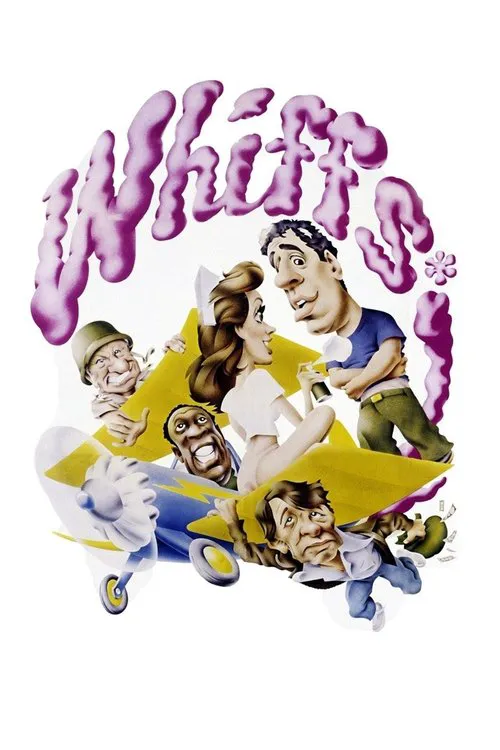Whiffs

Trama
In the 1976 American thriller film Whiffs, Elliott Gould plays the lead role of Sergeant Jack 'No-Neck' McGurn, a gruff, street-smart veteran of the military who has spent 15 years as part of the Army's chemical warfare experiments. Having been used as a human guinea pig in these experiments, McGurn has been subjected to numerous secret tests with Army nerve gas, and it's clear that the toll this has taken on his physical and mental health is significant. McGurn's military career has been marked by a string of incidents that have led to him being ostracized by his comrades and ultimately, a medical discharge from the Army, a common euphemism for being forced out of the military for one reason or another. With his military career behind him, McGurn sees an opportunity to utilize the skills he's developed in service - namely his military and combat training - in order to start an ambitious new career. McGurn has always had an affinity for taking risks and pushing the limits, and upon being forced to leave the military, he sees this as the perfect chance to start making a name for himself on the streets. However, his plan isn't as simple as he initially makes it out to be. He soon starts to formulate a plan to steal Army nerve gas and use it to make a fortune by robbing banks. McGurn's reasoning for using the Army nerve gas in this way is simple: it provides him with a unique opportunity to incapacitate his targets - namely the bank tellers and security personnel - without harming any innocent bystanders. With his plan put into action, McGurn begins a series of daring robberies across American cities. As McGurn's bank robbery scheme gains momentum and media attention, the US Army becomes increasingly interested in tracking down and apprehending the culprit. The plot of Whiffs shifts to follow the cat-and-mouse game that develops between McGurn and the Army as they engage in a game of espionage and counter-espionage. However, just as the stakes seem to grow higher with each passing day, it becomes increasingly clear that McGurn's actions are motivated by more than just a desire to gain wealth. McGurn's experiences in the military's chemical warfare experiments have left him severely emotionally and psychologically damaged, making him increasingly desperate to be heard by the world about what he has gone through. In some way, his actions - while initially seemingly reckless and violent - take on a twisted, altruistic quality as he aims to draw attention to the suffering that he and other veterans of the experiments have endured. The title of the film, Whiffs, alludes to the chemical properties of the nerve gas that McGurn has stolen, which leave behind a faint, lingering smell long after it has been deployed. It's an ironic and poignant image that serves as a constant reminder of the horrors that McGurn and others like him have faced. As tension builds and the government and military close in on McGurn, the stakes seem to grow higher, with his actions threatening to expose the government's involvement in the chemical warfare experiments. This, in turn, threatens to ignite a full-blown public scandal that could have catastrophic consequences for the government's image and that of the military. Throughout his thrilling and thought-provoking plot, the 1976 film Whiffs provides a searing critique of the darker corners of American military culture, where the lines between patriotism and exploitation are constantly blurred. With an explosive mix of action, suspense, and socially conscious commentary, Whiffs makes for a compelling watch for fans of both conspiracy thrillers and historical dramas.
Reseñas
Recomendaciones




